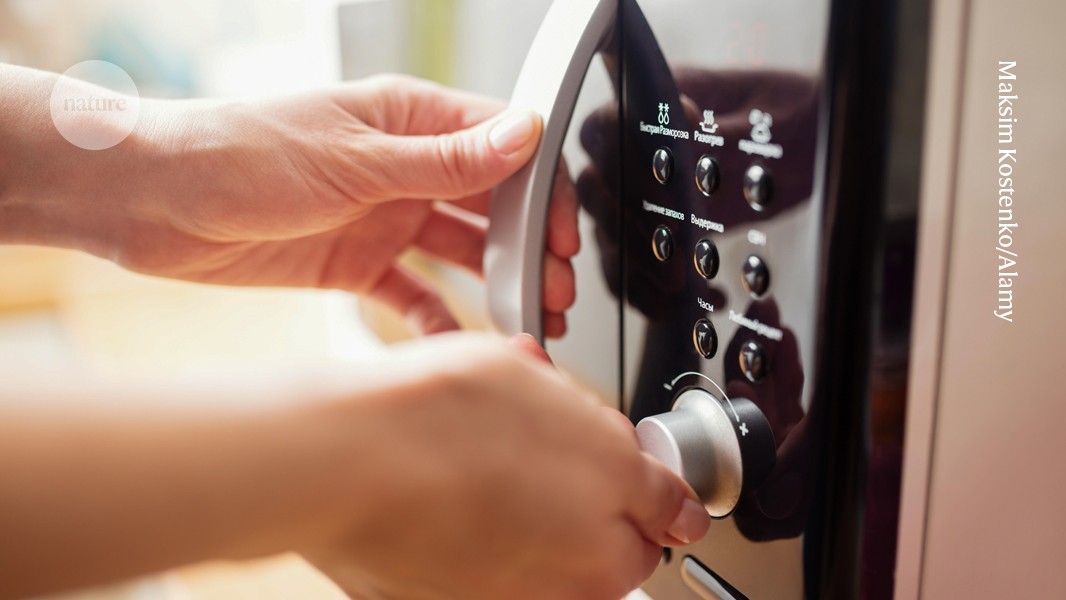- cross-posted to:
- [email protected]
- [email protected]
- cross-posted to:
- [email protected]
- [email protected]
From the article:
But for the general public, the implications of the study are simpler. “A microwave is not a pure, pristine place,” Porcar says. It’s also not a pathogenic reservoir to be feared, he says. But he does recommend cleaning your kitchen microwave often — just as often as you would scrub your kitchen surfaces to eliminate potential bacteria.
Leave your microwave door open after you finish using it. This lets it dry out inside. Greatly cuts down on the funk!
How does bacteria live through being microwaved? I would think they’d boil from the inside out.
If you’re reading this I am in dire straights, possibly dead. I woke up this morning to find my microwave is bursting with tardigrades. I have left it cooking nonstop for 13 consecutive days and they’ve only gotten more pissed off. I’ve welded their every possible exit from the machine shut, but I fear they are beginning to chew their way out. If you’re reading this, tell the government they need to drone strike my location immediately, possibly nuke it. The world is not prepared for what is inside my microwave.
Y’all ever see that one episode of Cowboy Bebop
Who knew lobster could go so wrong?
Hold the nukes it’s just going to piss them off
Touch the inside walls of your microwave after you heat something up. They don’t get all that hot.
The walls of the microwave don’t contain water. The bacteria do. Microwave ovens work by vibrating water molecules, creating friction and heat. If bacteria are on the oven walls, they should be exploding from the microwaves.
Since the metal wall is conductive, the standing wave pattern inside a typical microwave oven has a magnitude that goes to zero at the conductor surface. The heating power also goes to zero at the wall serface. Additionally, anything in thermal contact with the metal wall will remain close to the temperature of the wall even if there is a heat flux. Bacteria may well be cooked on the carousel plate, but there will be regions within the cooking cavity where bacteria will not experience high enough temperatures for sanitization.
Check out this page and note how the heating profile is vanishingly small around the perimiter. https://www.highfrequencyelectronics.com/index.php?option=com_content&view=article&id=2153:smoothing-electric-fields-in-microwave-ovens&catid=178&Itemid=189
PS: friction is not an applicable term to describe how microwaves rotating dipoles produces heat.
That’s a super cool link. Thanks for sharing!
That makes sense that some degree of bacteria survives - even if its minuscule. Like how any disinfectant is only 99.9% effective
Imagine how tough the surviving organisms are to be able to survive that…
Welcome to the salty microwave, how tough are you?
I’m the 0.01%
Tardigrades
Tardigrades everywhere.
… don’t very few things not have their own little microbiome?
No the fuck it does not. I’m one of those people that actually cleans theirs. Seeing any kind of spill in the microwave, or stuff on the walls, grosses me out.
this isnt about spills. the point is that microwaves arent self-cleaning on a microbial level. even if your microwaves looks prestine, it could still house a lot of bacteria that are capable of surviving radiation.
Seems like it’s pretty much like any other surface in your kitchen, it requires regular cleaning.
it’s like any other surface anywhere - even if you clean it regularly it will still have bacteria on it. but the thing is most bacteria are not harmful.
I don’t like external bacteria that can survive radiation…
Removed by mod
What a weird thing to attack someone over.
An interesting read, one of the reasons why I clean the things that I own. Microorganisms will find ways to survive and thrive on any surface. I like to first clean and then use a natural sanitizer after.
What do you use as a “natural sanitizer?”
Seventh Generation has a disinfectant based on an essential oil, thymol is the active ingredient.
Just nuke some thyme, got it
Mine shouldn’t since I clean that thing regularly with antibacterial cleaners. Unless it’s that 0.1% of germs not annihilated by the cleaner… 🤔 Shit where’s the 100% cleaner?
Don’t use antibacterial cleaners for general cleaning. Especially not hand soap. All you’re doing is breeding a master race of resistant bacteria in your home.
Yes. Use plain non-antibacterial soap. Or bleach if you want something stronger.







